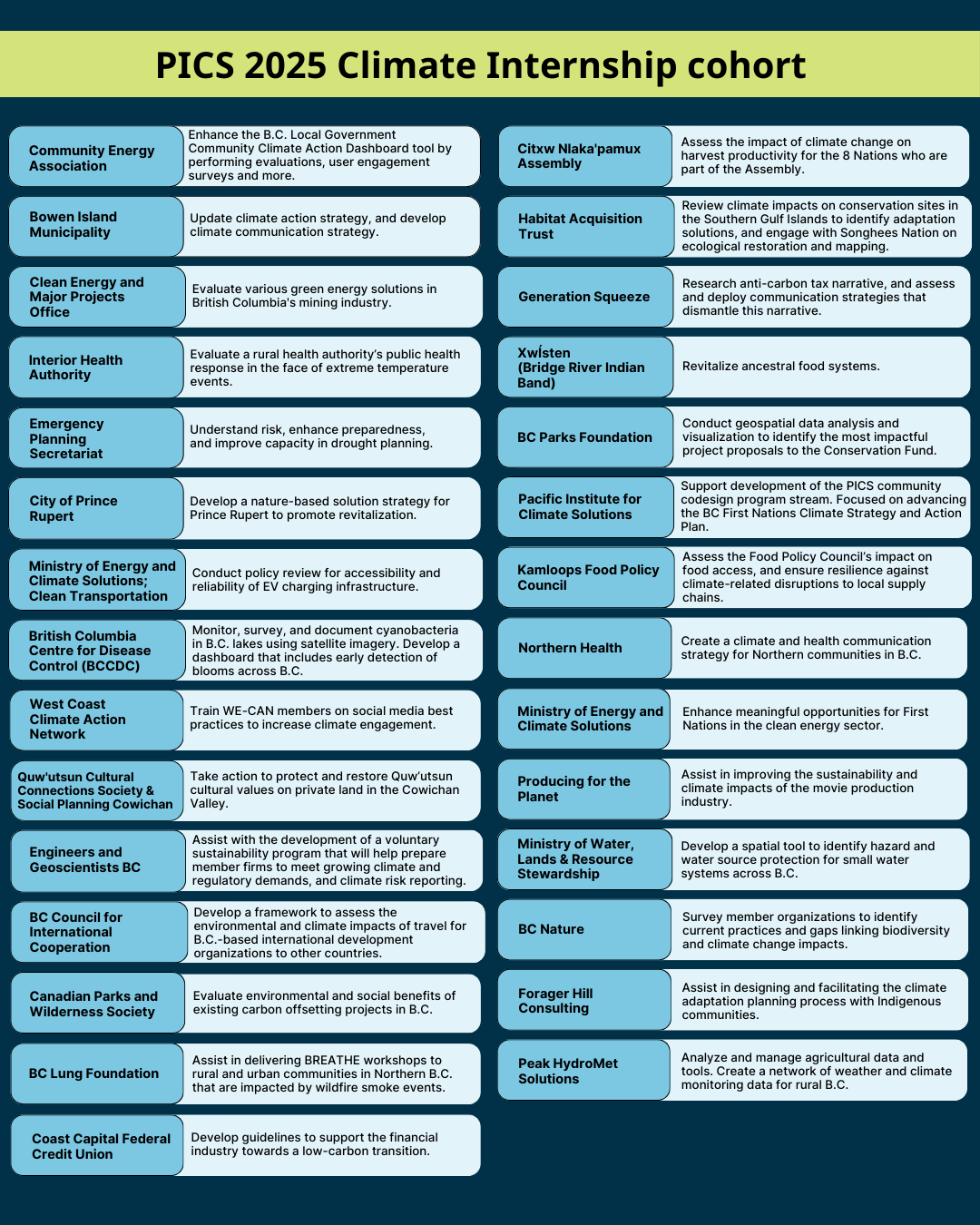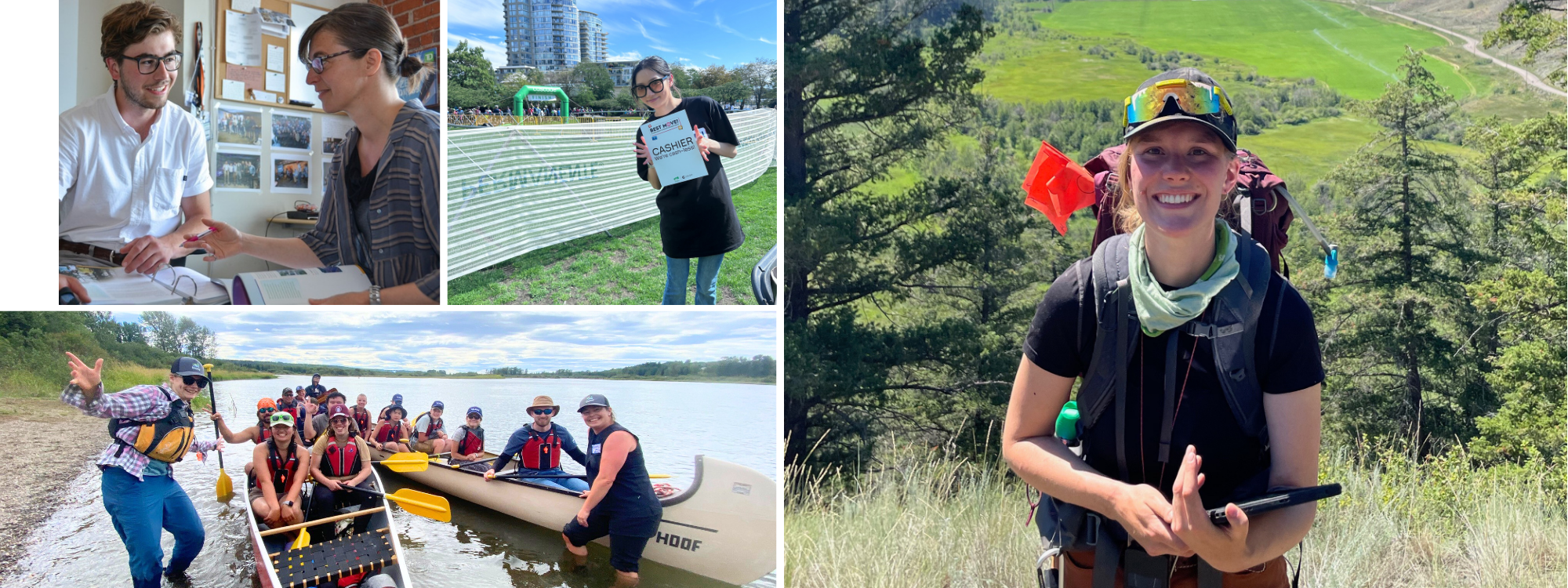The Pacific Institute for Climate Solutions (PICS) has awarded climate internship grants to a record-breaking 29 host organizations across the province. Internships will take place this upcoming summer, giving students hands-on experience in addressing urgent climate challenges, while providing host organizations with the additional capacity needed to advance climate-related projects.
“The PICS Internship Program is invaluable.”
– Lily Yumagulova,
North Shore Emergency Management (2024 host organization)
The 2025 internships cover a diverse range of projects, from public outreach and communication initiatives to developing climate adaptation plans for Indigenous communities. Other projects include agricultural climate data analysis, ancestral food system revitalization, assessing EV charging infrastructure, drought planning, and more. Internships will be hosted across six regions in B.C., including Northern B.C., the southern interior, the lower mainland, and the capital district.
The table below provides an overview of each host organization and the climate action project their PICS intern will support this summer.

Students, are you interested in applying for a PICS internship?
Positions are being posted now through April 2025 on the PICS careers page.
Don’t miss this opportunity to contribute to meaningful climate solutions while gaining valuable experience!
This year’s program is supported by a generous $100,000 contribution from Coast Capital Federal Credit Union.




